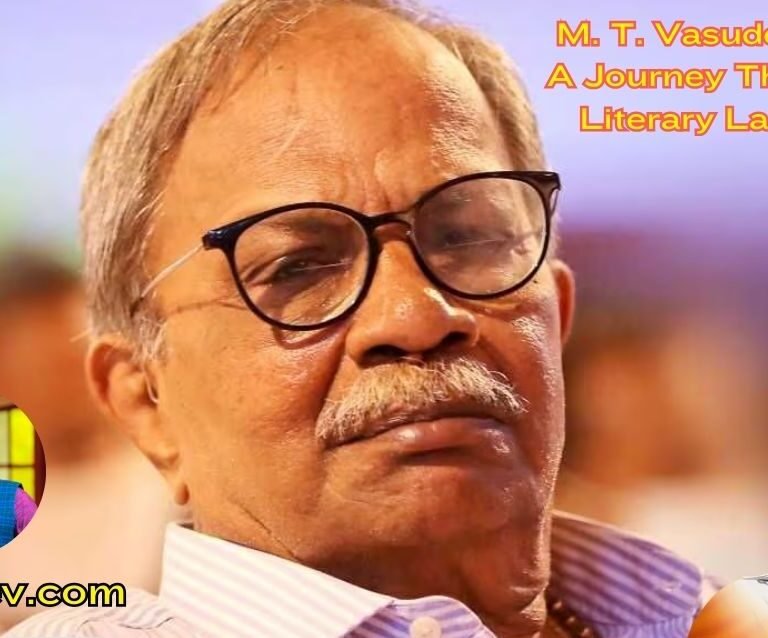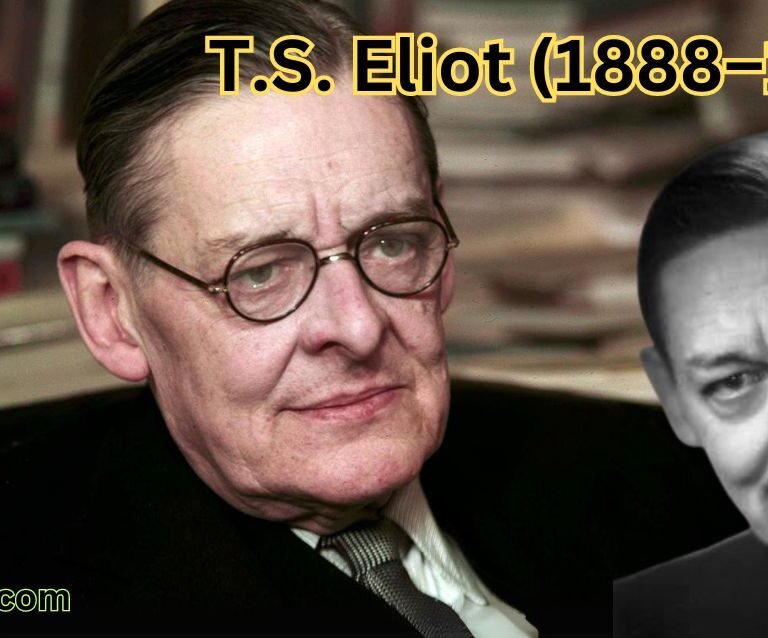Paulo Coelho
Paulo Coelho de Souza, a name synonymous with transforming literary landscapes, was born on August 24, 1947, in Rio de Janeiro, Brazil. Emerging from a culturally rich background, Coelho’s early years were marked by an innate curiosity and love for the arts, traits that would later define his illustrious career. Despite facing various challenges, including societal expectations and periods of soul-searching, Coelho was steadfast in his commitment to pursue his passion for writing and storytelling.
Coelho’s foray into the world of literature was not immediate. Before becoming a full-time novelist, he carved a niche for himself in the Brazilian music industry as a distinguished lyricist. This period was pivotal, marking his initial success and heralding his future accomplishments in the literary domain. His transition from music to literature was seamless, fueled by a deep-seated desire to explore the profound aspects of human existence and spirituality through the written word.
Coelho’s literary journey gained remarkable momentum with the publication of his seminal work, “The Alchemist,” in 1988. This novel, which has been translated into numerous languages and sold millions of copies worldwide, established Coelho as a formidable figure in modern literature. Over the years, his body of work has expanded to include an array of novels, each characterized by thematic depth, introspection, and universal appeal.
In recognition of his substantial contributions to literature, Paulo Coelho was inducted into the Brazilian Academy of Letters in 2002. This prestigious membership underscores his impact not only on Brazilian culture but also on the global literary stage. With profound narratives that transcend geographical boundaries, Coelho’s works continue to inspire readers around the world, solidifying his legacy as a visionary storyteller.
Early Life and Influences
Paulo Coelho de Souza was born on August 24, 1947, in Rio de Janeiro, Brazil. He grew up in a middle-class family, with his father, Pedro Queima Coelho de Souza, being an engineer, and his mother, Lygia Coelho, a homemaker. Both parents stressed the importance of education and traditional values. However, from an early age, Coelho was far more inclined towards the arts rather than the sciences, much to his parents’ dismay. This divergence sowed the seeds of conflict, especially with his father, who had envisioned a different career path for him.
Educationally, Coelho attended a strict Jesuit school. The institutional rigidity was stifling for a young boy who found joy in writing. By the age of 16, Coelho’s rebellious nature lead him to pursue a path contrary to his parents’ wishes. Resistant to conventional education, he sought to embrace a bohemian lifestyle. This brought him to experiment with theater, poetry, and even music, significantly shaping his later works. These formative experiences fueled his imagination and laid the groundwork for his unique literary voice.
Despite his growing passion for writing, Coelho endured a period of personal turmoil marked by his parents’ attempts to curb his aspirations. His nonconformist behavior prompted them to place him in a mental institution, where he underwent electroshock therapy. These harrowing episodes left an indelible mark on Coelho and profoundly influenced his later narratives, particularly in addressing themes of spiritual quest, freedom, and self-actualization.
The cultural milieu of 1960s Brazil also played a crucial role in shaping Coelho’s perspectives. The nation was a hotbed of socio-political upheaval, with burgeoning artistic movements that challenged the status quo. Amidst this backdrop, Coelho found himself inspired by the works of Argentine writer Jorge Luis Borges and American counterculture literature, which further ignited his resolve to become a writer. Through these early life experiences and influences, Paulo Coelho began to forge a literary path that would eventually resonate with millions worldwide.
Lyricist Career
Before Paulo Coelho de Souza became an internationally acclaimed novelist, he embarked on a significant yet lesser-known career as a lyricist. During the late 1970s and early 1980s, Coelho collaborated extensively with prominent Brazilian musicians, most notably Raul Seixas, a pivotal figure in the Brazilian rock scene. Their partnership yielded numerous influential songs that not only became anthems of their time but also contributed to the cultural and social landscape of Brazil.
Coelho and Seixas’s collaboration was marked by a synthesis of musical versatility and profound lyrical content. Their works often explored spiritual and existential themes, an aspect that would later become a hallmark of Coelho’s novels. Songs such as “Gita” and “Al Capone” received widespread acclaim for their philosophical undertones and introspective qualities. This deep-rooted exploration of the human condition in his lyrics provided a fertile groundwork for his narrative voice as an author.
Moreover, Coelho’s experience as a lyricist honed his ability to convey complex emotions and intricate ideas succinctly. This skill translated seamlessly into his writing style, enabling him to craft novels that are both accessible and thought-provoking. The lyrical cadence and rhythm inherent in his music compositions also found their way into his prose, offering readers a unique narrative flow that is both engaging and reflective.
Interestingly, Coelho’s stint in the music industry also contributed to the recurring themes of rebellion and nonconformity in his literary works. His partnership with Seixas, who was known for his anti-establishment stance, reinforced Coelho’s own quest for spiritual and personal freedom. This quest became a central theme in many of his books, such as “The Alchemist” and “Brida,” where characters embark on journeys of self-discovery and enlightenment.
In essence, Paulo Coelho’s lyricist career was not a mere prelude to his success as a novelist but a foundational period that shaped his narrative style and thematic preoccupations. His work with musicians, particularly Raul Seixas, left an indelible mark on his literary journey, enriching his novels with a depth and rhythm that continue to resonate with readers worldwide.
Breakthrough with ‘The Alchemist’
Paulo Coelho’s 1988 novel, ‘The Alchemist,’ marked a significant turning point in his writing career. The narrative follows Santiago, a young shepherd in search of a worldly treasure, who learns profound lessons about life and self-discovery. The novel’s themes of destiny, dreams, and personal legends resonate universally, capturing the imaginations of readers from diverse backgrounds.
Despite its subsequent success, ‘The Alchemist’ faced numerous obstacles upon its inception. Coelho initially struggled to find a publisher willing to take a chance on the manuscript. When it finally saw the light of day, the novel did not immediately take off. However, Coelho’s unwavering belief in his work paid off as he actively promoted it, gradually securing an appreciative audience.
The novel’s reception evolved dramatically from lukewarm to spectacular. After being picked up by a larger publishing house, ‘The Alchemist’ transformed into a global phenomenon. Its simple yet profound storytelling drew accolades and repeatedly topped best-seller lists worldwide. The universal appeal of the novel lies in its blend of mysticism, wisdom, and philosophy, which addresses fundamental human concerns and aspirations.
The success of ‘The Alchemist’ catapulted Paulo Coelho to international literary fame. Beyond the initial surge in popularity, the novel’s long-term success is evident in its translation into more than 80 languages, making it one of the most translated books in history. Sales exceeding 65 million copies attest to its enduring popularity and widespread impact. The novel’s success laid a solid foundation for Coelho’s future literary endeavors and firmly established him as a prominent figure in contemporary literature.
As a keystone work, ‘The Alchemist’ not only transformed Coelho’s life but also inspired millions of readers worldwide. Its message of following one’s dreams and listening to one’s heart continues to resonate, making it a timeless classic that stands the test of time.
Major Works and Themes
Paulo Coelho’s literary journey did not end with “The Alchemist.” Following this landmark work, he published several other notable books, each contributing uniquely to the literary world. These works delve into themes such as spirituality, destiny, self-discovery, and the human condition, consistently resonating with readers globally.
One of his earlier works post-“The Alchemist” is “Brida” (1990). This novel explores the journey of a young Irish girl named Brida who is seeking her place in the world. The story dives deep into spirituality and the mystical experience, wrapping the narrative around her quest for knowledge and self-fulfillment.
“The Valkyries” (1992) is another significant work, chronicling Coelho’s own 40-day journey through the Mojave Desert. The narrative focuses on introspection and the quest to overcome personal demons, interwoven with themes of faith and divine intervention.
“By the River Piedra I Sat Down and Wept” (1994) follows Pilar, a woman who reunites with her childhood love, sparking a journey of spiritual reawakening and emotional conflict. This book highlights the path to rediscovering one’s inner strength and the complexities of love.
In “The Devil and Miss Prym” (2000), readers encounter a small village torn apart by moral dilemmas. This story tests the limits of human nature, presenting themes of good versus evil and the choices individuals must make under extraordinary circumstances.
“Veronika Decides to Die” (1998) presents a provocative narrative where the protagonist, Veronika, awakens to the value of life after a failed suicide attempt. The novel explores existential themes, mental health, and the journey to find meaning amidst despair.
“Eleven Minutes” (2003) tells the story of Maria, a Brazilian woman who becomes a sex worker in Switzerland. This book deals with themes of love, sexuality, and personal freedom, portraying Maria’s path to understanding her desires and the essence of true love.
In these works, Coelho frequently intertwines common themes of spirituality, self-discovery, and the human condition, reflecting his own life’s journey and philosophical insights. His ability to connect with readers through profound yet accessible storytelling ensures his standing as a prominent figure in modern literature.
Writing Style and Philosophical Influences
Paulo Coelho de Souza is widely celebrated for his distinctive writing style, which seamlessly blends simplicity with profound philosophical depth. His narrative technique is characterized by lucid and accessible language, making his works both approachable and thought-provoking. This simplicity allows readers from diverse backgrounds to engage deeply with his texts, drawing out personal and universal truths through vivid storytelling. Coelho’s adept use of allegory and symbolism adds layers of meaning to his narratives, encouraging readers to explore the spiritual and existential themes embedded within.
Central to Coelho’s storytelling is his use of allegorical frameworks. These serve not only as literary devices but also as vehicles for philosophical exploration. His celebrated novel, “The Alchemist,” is a prime example, where the journey of the protagonist mirrors the archetypal hero’s quest for self-discovery and enlightenment. The symbols and motifs in his stories often resonate with the esoteric wisdom found in various religious and spiritual traditions, from Christianity and Islam to Buddhism and Taoism. These influences infuse his narratives with a rich tapestry of ideas, promoting introspection and a deeper understanding of the human experience.
Coelho’s philosophical influences are diverse and deeply embedded in his works. He often draws from mystical traditions, existential philosophies, and even elements of magical realism. His background as a lyricist further enhances his narrative style, imbuing his prose with a lyrical quality that captivates and inspires. This musical influence manifests in the rhythm and flow of his writing, enriching the reader’s experience through evocative and poetic imagery.
Furthermore, Coelho’s narratives often emphasize themes of personal legend, the pursuit of dreams, and the alignment of one’s life purpose with the universe. These themes are reflective of his broader metaphysical beliefs, which advocate for a harmonious existence and a deeper connection with the soul’s true desires. Through his unique storytelling approach, Paulo Coelho de Souza invites readers to embark on their own journeys of discovery, encouraging a holistic view of life that is both inward-looking and transcendental.
Global Impact and Reception
Paulo Coelho de Souza’s literary works have resonated profoundly across the globe, garnering a diverse and extensive readership. His novels have been translated into over 80 languages, a testament to his universal appeal and the compelling nature of his storytelling. This widespread translation effort has enabled Coelho’s stories to transcend cultural and linguistic barriers, allowing his messages of personal growth, spirituality, and self-discovery to reach a vast audience.
With more than 225 million copies sold worldwide, Coelho’s books, particularly “The Alchemist,” have carved out an enduring legacy in the literary world. “The Alchemist,” often hailed as a modern classic, has achieved unprecedented success, topping the bestseller lists in numerous countries and inspiring countless readers with its themes of destiny and the pursuit of dreams.
Coelho’s influence extends deeply into various cultures due to his ability to weave universal themes with culturally specific elements. His narratives often delve into mysticism and folklore, characteristics that resonate with readers from diverse backgrounds. This cross-cultural appeal is further exemplified by the strong connections his novels have forged with readers in both Western and Eastern societies. In certain regions, Coelho’s works have become a part of academic discourse, further validating their impact and relevance.
The broad international appeal of Coelho’s work can also be attributed to his unique narrative style, characterized by simplicity and profundity. Readers from various cultural backgrounds find his direct yet philosophical prose accessible and evocative, making his stories both thought-provoking and approachable.
His literary achievements have not gone unnoticed in the global literary community. Paulo Coelho has received numerous prestigious awards, including the Golden Book Award in Yugoslavia and the Grand Cross of Honour for Distinguished Service to the Republic of Portugal. These accolades underscore the significant impact of his contributions to literature and his influence on readers worldwide.
Legacy and Continuing Influence
Paulo Coelho de Souza’s legacy in the literary world is monumental, his works transcending linguistic and cultural barriers to touch the lives of millions across the globe. Known for his distinctive writing style that seamlessly blends mysticism, spirituality, and personal growth, Coelho has created a canon that resonates profoundly with readers seeking deeper meaning in their lives. His books have been translated into numerous languages, an acknowledgment of the universal appeal of his storytelling.
Coelho’s seminal work, “The Alchemist,” has inspired countless readers to pursue their dreams, a testament to its enduring popularity and relevance. This novel alone has sold millions of copies worldwide and continues to be a mainstay in both literary and self-help genres. Coelho’s influence extends beyond the pages of his books; his unique ability to weave profound philosophical concepts into accessible narratives has contributed significantly to contemporary literature’s landscape.
In the digital age, Paulo Coelho has adeptly harnessed social media platforms to engage with his global fan base. Regular interactions on platforms like Twitter, Facebook, and Instagram allow fans to gain insights into his thoughts and creative process, fostering a deeper connection between the author and his audience. This digital presence ensures that Coelho’s influence remains relevant amid the rapidly evolving literary and cultural scene.
Despite his longstanding success, Coelho shows no signs of retiring his literary pursuits. Recent publications such as “The Archer” continue to showcase his ability to inspire and provoke thought. His ongoing contributions to literature demonstrate a continual evolution as a writer, ensuring that his voice remains pivotal in shaping contemporary literary dialogue.
The legacy of Paulo Coelho de Souza is one of inspiration and profound impact. His work continues to light pathways for readers embarking on their own personal journeys, solidifying his place as not just a prolific author but a cultural and literary icon whose influence is felt far and wide.









